Notes
Healthcare Meets the Breadline
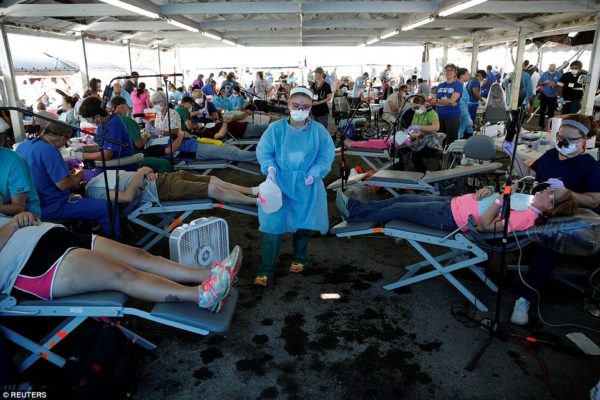
I admit, when I first saw RAM photos, I was shocked. I thought I was looking at a third world NGO mission. But that was early in the Great Recession, and almost a decade before November’s GOP election sweep and the all-out assault on the Affordable Care Act.
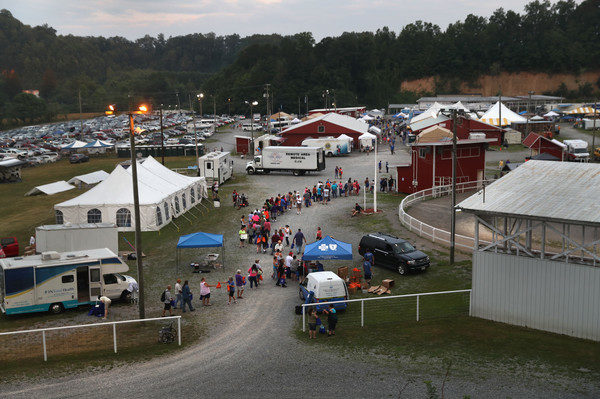
The most recent RAM photo story comes from Wise, Virginia. Two weeks ago, hundreds of Appalachian residents traveled to the Wise County Fairgrounds for free dental, vision and medical services. Many slept overnight in or on cars to get an better place in line.
In the photo leading the post, you can see the hard ground, the open air structure and rows of patients being attended to. Absent walls or even curtains, the scene is reminiscent of a military field hospital. And the war analogy is not far-fetched. Healthcare has become a major political front. The far right disavows any connection between governmental involvement and access or cost. It abhors Medicare and Medicaid, and see no connection between health and productivity, or healthcare as a social investment.
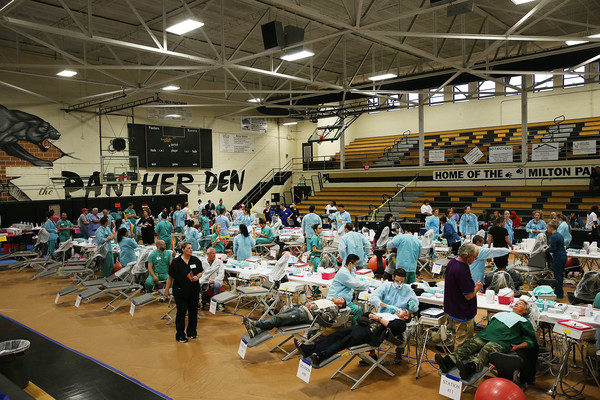
In the early days, I was especially interested in those wide views — the ones showing doctor after doctor working on patient after patient in large make-do spaces at a fairground or, in the case just above, a RAM clinic held in a gym in Milton, Florida, in December 2016. I was fascinated and impressed with the ability to operate, sometimes literally, at this scale.
But those treatment photos don’t really interest me anymore. Not as much as all the photos of citizens waiting patiently and pensively, or standing in line.
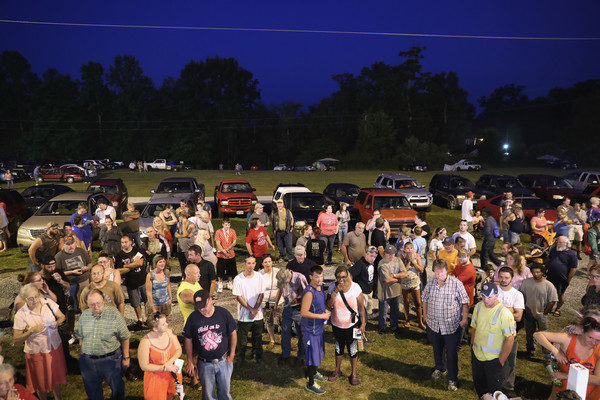
This photo from Virginia shows people waiting. Yet, the scene is deceptively calm. It’s hard to gauge the need or the urgency of the uninsured and underinsured because of the distance, and the sense that people are mostly milling around.
Other photos from RAM clinics, however, convey a different tone, one more fitting to the path we’re on.
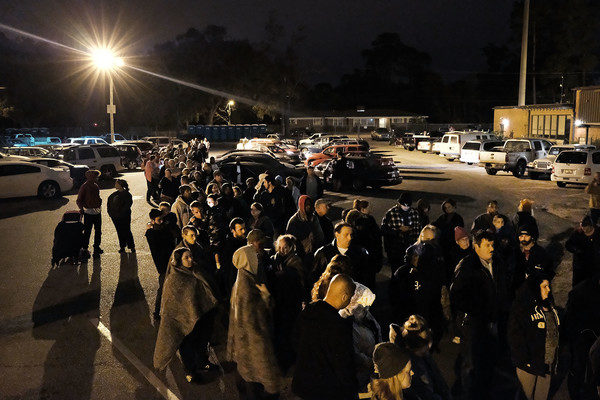
When you see those photos, like the one above from Milton, the situation suddenly becomes strikingly familiar.
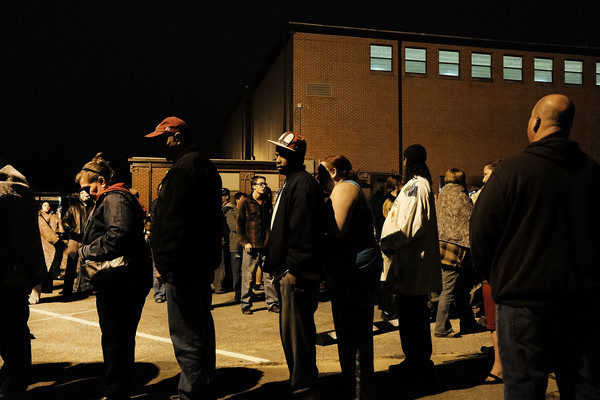
As this country has more solidly separated into two, one for the haves and the other filled with have-nots, the imagery hearkens back to scenes of the Great Depression. Those photographs of people in bread lines, or people waiting in queues outside soup kitchens, became synonymous with the country’s deep economic woes.
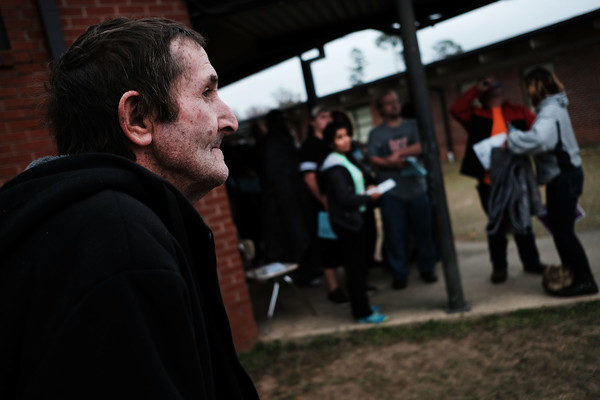
As healthcare frays and political abuse starts to further break down the system, these scenes become a lot more recognizable. Except it is not a scrap of bread or a plate of chili and beans these people are desperate for in the richest country in the world. It’s just the chance to see a doctor.
(photo 1: Joshua Roberts/Reuters caption: A volunteer walks past people receiving dental care at the Remote Area Medical Clinic in Wise, Virginia, U.S., July 22, 2017. Hundreds of Appalachia residents waited through the night for the annual Remote Area Medical (RAM), clinic for dental, vision and medical services held at the Wise County Fairgrounds in western Virginia.photos 2 & 4: John Moore/Getty Images caption: People wait to get free healthcare services at the Remote Area Medical (RAM), mobile clinic on July 21, 2017 in Wise, Virginia. Thousands of medical volunteers gather at the annual event to provide free dental, medical and vision services uninsured and underinsured people. The three-day clinic, held at the Wise County Fairgrounds, is the largest of RAM’s free clinics held in Appalachia. July 20, 2017 . photos 3, 5 & 7: Spencer Platt/Getty Images. caption: Dentists work on patients at the Remote Area Medical (RAM) mobile dental and medical clinic on December 3, 2016 in Milton, Florida. It is expected that over a thousand people will show up seeking free dental and medical care at the two-day event in the financially struggling Florida panhandle community. RAM provides free medical care through mobile clinics in underserved, isolated, or impoverished communities around the country and world. As health-care continues to be a contentious issue in America, an estimated 29 million Americans, about one in 10, lack coverage.)
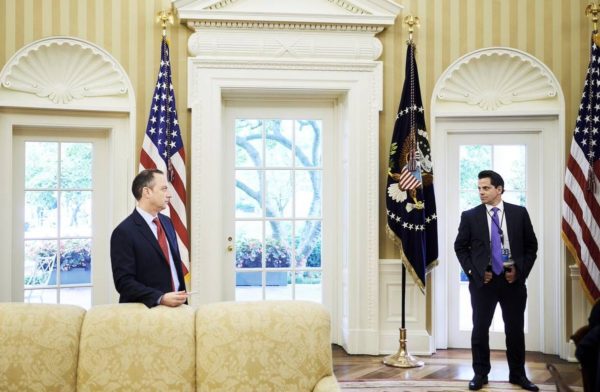
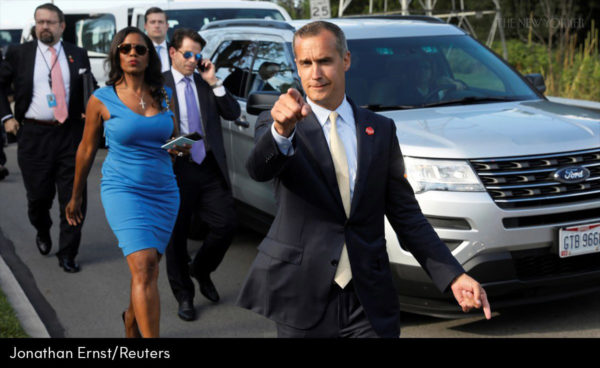
Reactions
Comments Powered by Disqus